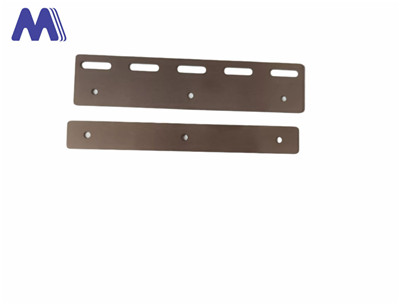- Afrikaans
- Albanian
- Amharic
- Arabic
- Armenian
- Azerbaijani
- Basque
- Belarusian
- Bengali
- Bosnian
- Bulgarian
- Catalan
- Cebuano
- Corsican
- Croatian
- Czech
- Danish
- Dutch
- English
- Esperanto
- Estonian
- Finnish
- French
- Frisian
- Galician
- Georgian
- German
- Greek
- Gujarati
- Haitian Creole
- hausa
- hawaiian
- Hebrew
- Hindi
- Miao
- Hungarian
- Icelandic
- igbo
- Indonesian
- irish
- Italian
- Japanese
- Javanese
- Kannada
- kazakh
- Khmer
- Rwandese
- Korean
- Kurdish
- Kyrgyz
- Lao
- Latin
- Latvian
- Lithuanian
- Luxembourgish
- Macedonian
- Malgashi
- Malay
- Malayalam
- Maltese
- Maori
- Marathi
- Mongolian
- Myanmar
- Nepali
- Norwegian
- Norwegian
- Occitan
- Pashto
- Persian
- Polish
- Portuguese
- Punjabi
- Romanian
- Russian
- Samoan
- Scottish Gaelic
- Serbian
- Sesotho
- Shona
- Sindhi
- Sinhala
- Slovak
- Slovenian
- Somali
- Spanish
- Sundanese
- Swahili
- Swedish
- Tagalog
- Tajik
- Tamil
- Tatar
- Telugu
- Thai
- Turkish
- Turkmen
- Ukrainian
- Urdu
- Uighur
- Uzbek
- Vietnamese
- Welsh
- Bantu
- Yiddish
- Yoruba
- Zulu
Hebei PVC Board Manufacturing and Applications in Construction and Design
Exploring the PVC Board Industry in Hebei Province
Hebei Province, located in Northern China, is a vital hub for various industrial sectors, including plastics manufacturing. Among the various products produced in this region, PVC (Polyvinyl Chloride) boards have gained prominence due to their versatility and numerous applications. This article explores the PVC board industry in Hebei, delving into its production processes, applications, advantages, and the future prospects of this growing market.
Understanding PVC Boards
PVC boards are synthetic plastic boards made primarily from polyvinyl chloride resin, which is a widely used plastic. The properties of PVC, such as durability, chemical resistance, and low maintenance requirements, make it a popular choice across multiple applications. PVC boards can be manufactured in various sizes, colors, and thicknesses, allowing for extensive customization to meet different consumer preferences and industrial requirements.
Production Process in Hebei
Hebei Province has established itself as a leader in the production of PVC boards, thanks to its abundant supply of raw materials and a robust manufacturing infrastructure. The production process typically involves the following steps
1. Raw Material Preparation The primary raw materials for PVC boards include PVC resin, stabilizers, fillers, and additives. Suppliers in Hebei source high-quality materials, ensuring that the end products meet industry standards.
2. Mixing The raw materials are precisely measured and mixed using specialized machinery. This step is crucial as it determines the mechanical and physical properties of the final product.
3. Extrusion The mixed material is then fed into an extruder, where it is subjected to heat and pressure to form a continuous sheet. This process allows for the creation of boards of varying thicknesses, depending on the intended use.
4. Cooling and Cutting After extrusion, the boards are cooled and cut into desired sizes. This is followed by a quality inspection to ensure that each board meets the required specifications.
5. Finishing and Packaging Finally, the boards undergo a finishing process, which may include surface treatments, and are then packaged for distribution.
Applications of PVC Boards
The versatility of PVC boards allows for their application in various industries
. Some common uses includepvc board hebei

- Construction PVC boards are widely used in the construction industry for wall cladding, partitions, and ceilings as they are lightweight, waterproof, and resistant to mold and moisture.
- Furniture Manufacturers increasingly use PVC boards to produce furniture, especially in the modular and contemporary segments, due to their aesthetic appeal and durability.
- Signage The advertising sector favors PVC boards for outdoor signage and displays, as they can withstand harsh weather conditions without deteriorating.
- Automotive PVC boards are also used in the automotive industry for interior fittings, providing a cost-effective and lightweight alternative to traditional materials.
Advantages of PVC Boards
The growth of the PVC board industry in Hebei can be attributed to several advantageous properties, including
- Durability PVC boards are highly resistant to impact, chemicals, and moisture, making them ideal for long-term use.
- Lightweight They are significantly lighter than materials like wood or metal, making installation easier and reducing transportation costs.
- Cost-Effective The relatively low production costs of PVC boards make them an economical choice for both manufacturers and consumers.
- Eco-Friendly Options Many manufacturers in Hebei are increasingly adopting sustainable practices, including the production of recycled PVC boards, which contribute to environmental conservation.
Future Prospects
The PVC board industry in Hebei Province is poised for significant growth in the coming years. With the increasing demand for sustainable building materials and the expansion of construction projects in China, manufacturers are likely to innovate further, improving the properties and applications of PVC boards. Additionally, the focus on enhancing production methods and efficiency will help industries meet both domestic and international market demands.
In conclusion, the PVC board industry in Hebei is a crucial segment of the province's economy, showcasing impressive growth potential. With its diverse applications, inherent advantages, and commitment to sustainability, PVC boards will continue to play an essential role in various sectors while shaping the future of materials used in construction, furnishings, and more.
-
Industrial Strip Curtains - Durable PVC & Plastic Solutions for Industrial DoorsNewsJun.24,2025
-
PVC Curtain Strip – Durable Standard PVC Strips for DoorsNewsJun.10,2025
-
PVC Strip Curtain – Durable & Transparent Plastic Strips for Industrial Use Affordable PricesNewsJun.10,2025
-
Clear Plastic Door Curtains Durable & Insulating VisibilityNewsJun.09,2025
-
Commercial Strip Curtains Energy Savings & Durability for Industrial UseNewsJun.09,2025
-
Anti-Cold PVC Strip Curtains Thermal Insulation & Energy Saving SolutionsNewsJun.09,2025



